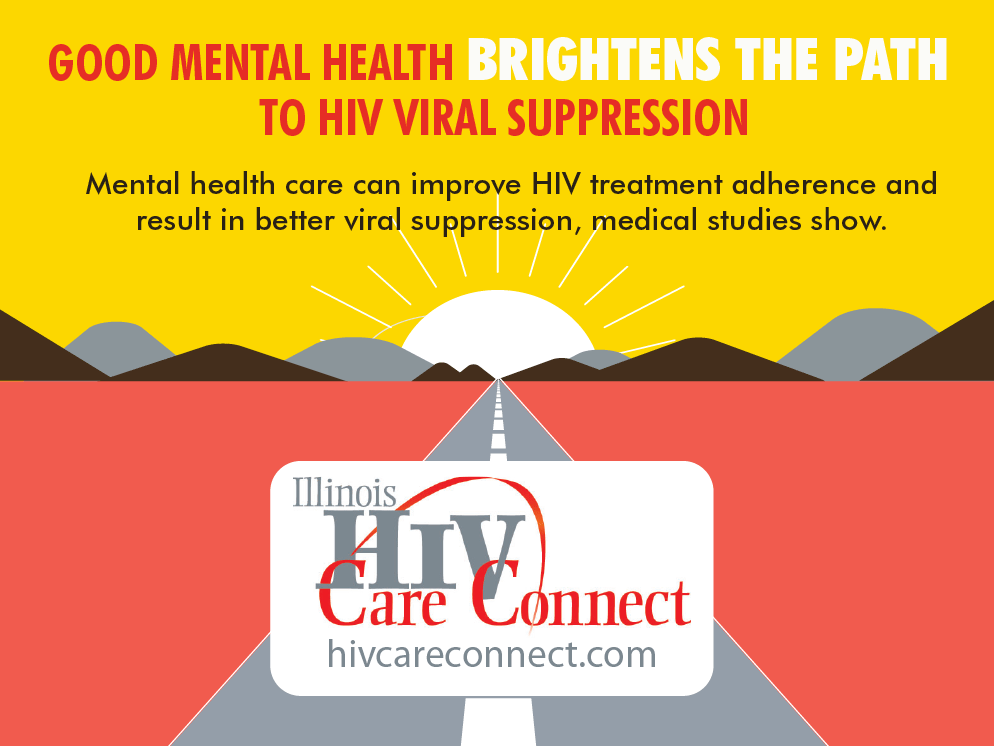Each of us encounters stressful situations as we go about our lives. We can often adapt to these pressures, but sometimes excessive or prolonged stress – coupled with personal, medical, genetic and psychological factors – can trigger symptoms associated with a mental health condition. Depression, anxiety, eating disorders and bipolar disorders are among the most common of these conditions.
Mental health conditions affect about one in five Americans. These conditions are even more common among people living with HIV. Data from the Illinois Department of Public Health (IDPH) show that about 40 percent of case-managed clients living with HIV in Illinois have a mental health condition in their medical history. IDPH data also indicate that HIV-positive individuals with mental health conditions have a more difficult time achieving medication adherence and viral suppression – a low level of HIV in the blood associated with optimal health for people living with HIV.
As you know, people living with HIV must deal with a unique set of pressures, on top of everything else. For this reason, you must be aware of your mental health status and tend to your mental health as an important aspect of your everyday life. Having good mental health is an important part of staying healthy when you have HIV.
Help in an emergency:
If you are experiencing emotional distress and have suicidal thoughts, call the National Suicide Prevention Lifeline at
1-800-273-TALK (8255).
Help in a non-urgent situation:
If you feel you are experiencing the symptoms of a mental health condition, schedule a time to discuss your feelings with your health care provider or Illinois HIV Care Connect case manager. If you are not yet enrolled in Illinois HIV Care Connect, you may enroll through seven different regional offices.
Learn more about viral suppression – the key to living healthy with HIV








